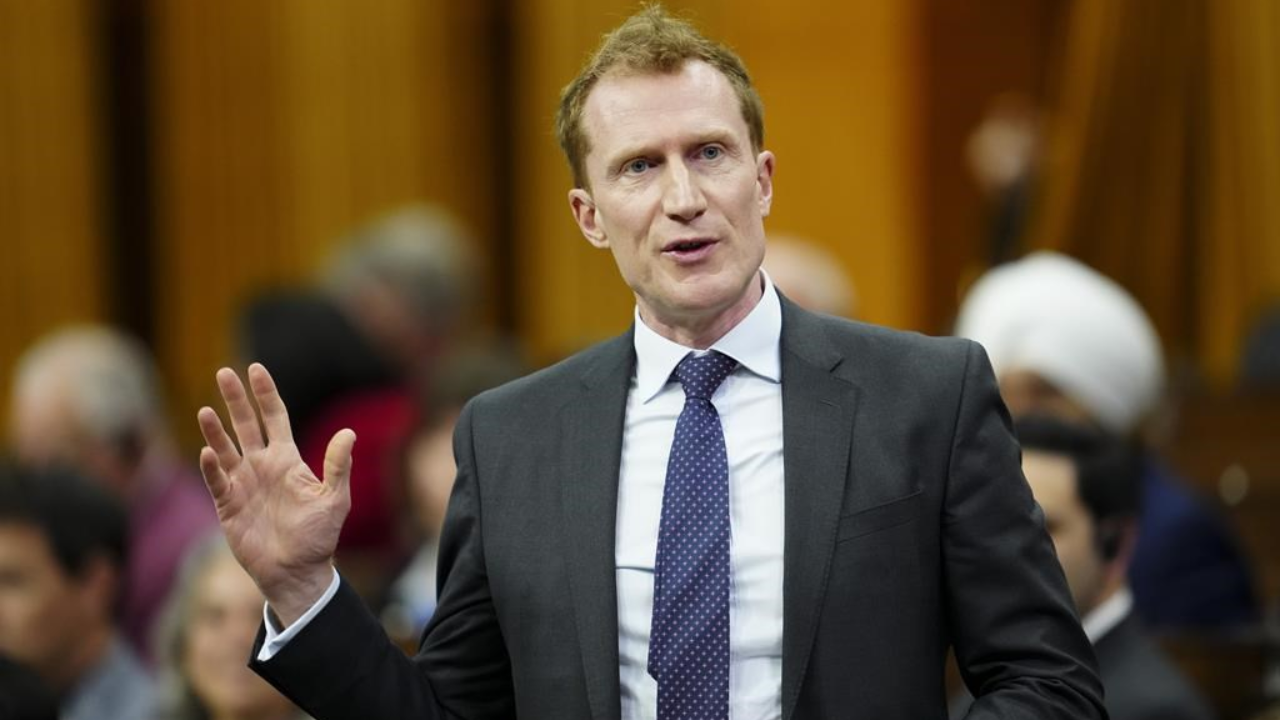

Marc Miller, Minister of Immigration, announced new measures to control non-permanent resident levels in Canada. Photo: The Canadian Press
In a recent interview, Marc Miller, Minister of Immigration, Refugees, and Citizenship, announced a series of upcoming measures to better manage the levels of non-permanent residents (NPRs) in Canada, which includes individuals on study or work permits. These initiatives are designed to address growing concerns over the high number of NPRs and ensure that immigration policies align more closely with Canada’s labour market needs.
Miller highlighted that the forthcoming measures could involve significant changes to the Post-Graduation Work Permits (PGWPs) and increased enforcement to ensure compliance. “The era of uncapped programs to come into this country is quickly coming to an end. This is a big shift,” Miller stated.
In June, Immigration, Refugees and Citizenship Canada (IRCC) distributed surveys to key stakeholders in the post-secondary education sector, seeking feedback on potential changes to the PGWP. The proposed changes aim to align the issuance of PGWPs with labour market demands. This means that work permits would be more readily available to students entering high-demand occupations, while access would be restricted for graduates from programs that do not meet these criteria.
IRCC, in collaboration with Employment and Social Development Canada (ESDC), has been mapping educational programs as outlined in the Classification of Instructional Programs (CIP) with job titles categorized by the National Occupation Classification (NOC) system. For example, the survey mentioned relevant NOCs for carpenters being linked to three programs of study: construction trades, carpentry, and woodworking.
Earlier this year, IRCC announced the first-ever target for non-permanent resident levels, which will be included in this year’s immigration levels plan. The goal is to reduce the levels of NPRs, stabilizing their proportion in the Canadian population to five percent over the next three years. As of April last year, NPRs constituted nearly seven percent of the total population.
As part of this initiative, IRCC has already imposed a two-year cap on international students, limiting the number of new post-secondary students to 292,000 this year. This cap will be reviewed in 2025, with potential adjustments to the international student levels for that year.
Additionally, Miller has indicated plans to prioritize "domestic draws" for both federal and provincial permanent residence (PR) pathways. This strategy aims to reduce the number of temporary residents by facilitating their transition to permanent residency, rather than recruiting new PRs from abroad. The intention behind this approach is to address issues related to housing and affordability that have been associated with high levels of immigration.
Miller emphasized the government's commitment to maintaining the integrity of the immigration system and addressing public concerns. He noted that immigration policies and their impacts will likely be a significant issue in the next election. “Immigration will be a top issue, if not the top issue, in the next election,” Miller said.
The new measures reflect a robust stance by the Canadian government to ensure that immigration policies are fair and beneficial for the country’s labour market. Legitimate businesses and students stand to benefit from a more regulated environment, while those engaging in fraudulent activities will face stricter consequences. These changes signify the government’s dedication to managing immigration levels effectively and maintaining public trust in the system.
Having an 'Identity Verified' badge or being 'Identity Verified' simply indicates that an individual has submitted information to complete our identity verification process or we have conducted internal verification using various authorized websites. While this process includes safeguards, it does not guarantee that the person is who they claim to be.
If you encounter any issues with this profile, please report them here. While all consultants who are verified have RCIC ID, we may not have the latest data in terms of their renewal/cancellation/discontinuation of their RCIC ID.
The "Verified Consultants" profiles are created using publicly available information, including data from the IRCC website, official consultant sites, other listing platforms, and social media. Immiperts.com is an independent platform, not affiliated with IRCC or any registered immigration consultants. To update, claim, or remove your profile, please contact us at [email protected].
╳